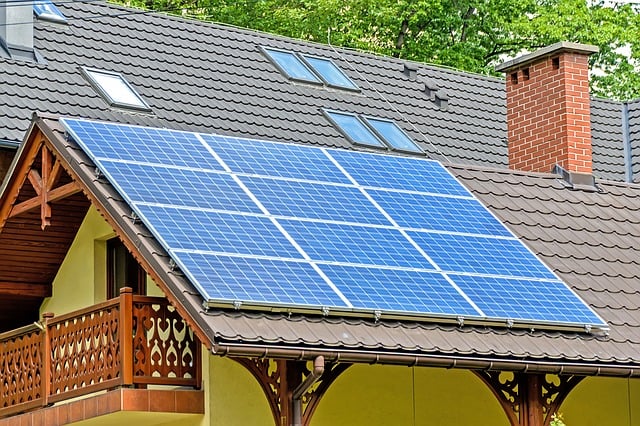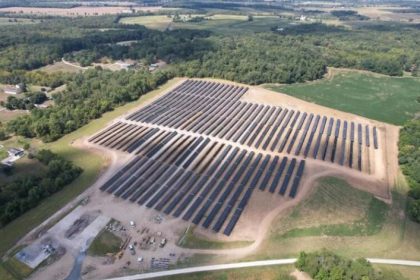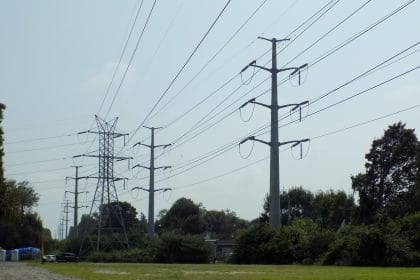Colorado’s Largest Utility Could Face Sanctions Over Solar Grid Delays

DENVER — Xcel Energy, Colorado’s largest electric utility, could face fines or other sanctions if it doesn’t address mounting delays in getting businesses and homeowners who opt for solar power connected to the grid.
The Colorado Public Utilities Commission is scheduled to discuss the matter on Wednesday, but already at least one state lawmaker has said he’ll introduce legislation imposing deadlines and fines himself if the regulator doesn’t act.
In recent years, residents of Colorado have been embracing solar power as a way to lower skyrocketing utility bills and to take advantage of state and federal tax incentives.
The problem is, as demand to get rooftop solar installations connected to the grid have surged, the ability to do those connections has remained fairly static.
As a result, connections that used to take a matter of weeks can now take six to 12 months.
Minneapolis, Minnesota-based Xcel Energy isn’t the only utility in the commission’s crosshairs, but as the biggest, it’s the subject of the most complaints.
To date, it has connected more than 70,000 customers’ solar systems to its grid in Colorado, including 18,000 last year alone.
In an email to The Well News, Michelle Aguayo, a spokeswoman for the company, said the utility strongly believes rooftop solar is a customer option that “plays a meaningful role in reducing carbon emissions in Colorado” and that Xcel has been “a strong partner” in making it happen.
“We apologize to those customers who have recently experienced delays in getting their new rooftop solar systems connected to the grid,” she said. “We’ve seen a significant increase in the number of customers seeking rooftop solar; we’ve completed more than 18,000 applications to connect solar to our grid in 2022 — a 34% increase compared to the previous year.
“As a result of this increased volume, we have experienced increased processing times mainly due to the time it takes engineers to complete reviews of each individual installation,” Aguayo explained.
“This is a critical step to ensure systems are safely interconnected to the grid. This had extended review timeframes by approximately two months. We are hiring and contracting for additional resources to help,” she said.
Later, Aguayo described the coordinated effort that must take place between solar installers and Xcel to ensure a grid connection goes smoothly.
At the top of the list is sharing detailed, accurate information “to ensure the solar systems can be connected to the grid in a safe and reliable manner.”
“We rely upon installers to understand their steps in the process and to provide accurate and timely information,” she said. “On our end, we review details such as the address, customer name and account, as well as technical specifications like engineering design documents.
“If Xcel Energy and the developers complete each step in a timely manner, a solar system can typically be interconnected in less than 60 days from the initial application,” she said. “This includes time for design and installation of the system by the installer. If applications are incomplete, it is sent back to the installer to correct, which can cause delays.”
Aguayo said the utility has also been actively addressing issues that arose with its application portal as demand increased, and that through working with its IT teams and contractors, those issues are being resolved.
“We are also making efforts to further educate installers on how to use the application portal most efficiently and effectively,” she said.
State Sen. Chris Hansen, D-Colo., whose district encompasses Denver, has said he could introduce a bill setting deadlines for solar hookups as soon as this week.
As complaints have mounted, he and other lawmakers have maintained that people’s ability to install solar systems and connect to the grid is an essential part of the state’s effort to both increase the use of renewable energy within its borders and reduce greenhouse-gas emissions from fossil fuels.
Aguayo said Xcel Energy believes legislative action is unnecessary.
“We’re working through the backlog of applications and as of last week are on track to clear the backlog up by early March. In addition, we’ve reallocated several internal resources to work as quickly as we can … and we’re working with the Colorado Public Utilities Commission, which has more detailed information and context on the issue.”
Dan can be reached at [email protected] and at https://twitter.com/DanMcCue
























